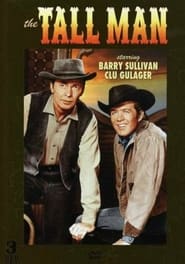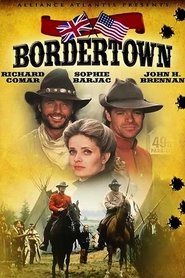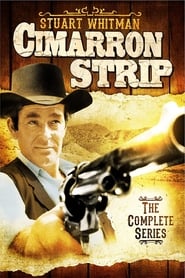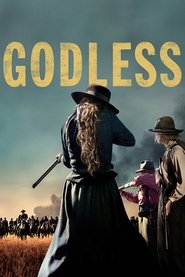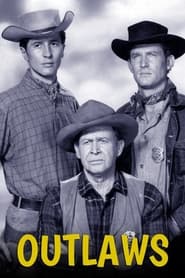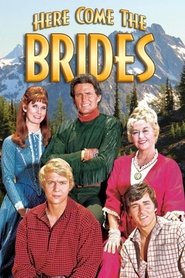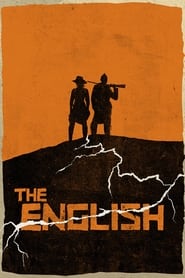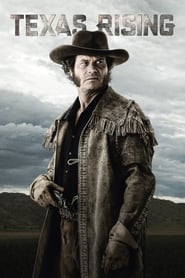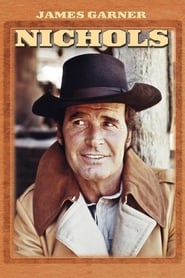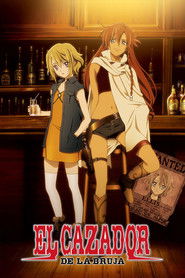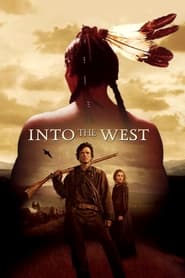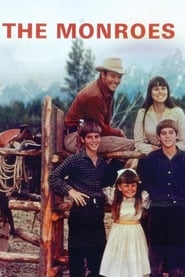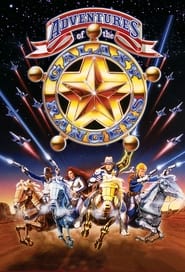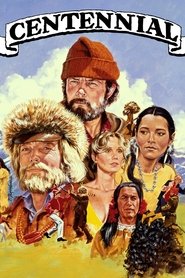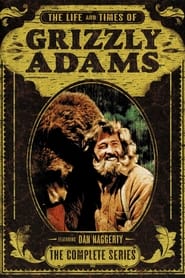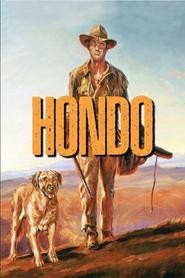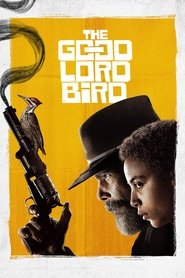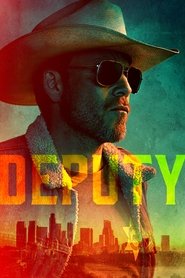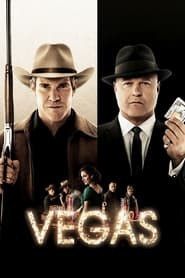Popular Western TV Series - Page 5
-
The Tall Man
1960
The Tall Man
1960
star 6.3The Tall Man is a half-hour American western television series about Sheriff Pat Garrett and the gunfighter Billy the Kid that aired seventy-five episodes on NBC from 1960 to 1962, filmed by Revue Productions. -
Bordertown
1989
Bordertown
1989
star 6.5Bordertown is a television western-drama series that aired from 1989 to 1991. It depicts the town formerly known as Pemmican that was later renamed Bordertown when the western border between the United States and Canada was surveyed in 1880, dividing the town. -
Cimarron Strip
1967
Cimarron Strip
1967
star 5.5Cimarron Strip is an American Western television series that aired on CBS from September 1967 to March 1968. Starring Stuart Whitman as Marshal Jim Crown, the series was produced by the creators of Gunsmoke. Reruns of the original show were aired in the summer of 1971. Cimarron Strip was one of only three 90-minute weekly Western series that aired during the 1960s, and the only 90-minute series of any kind to be centered primarily around one lead character. Cimarron Strip was set in the Oklahoma Panhandle, which comprises, east to west, Beaver, Texas, and Cimarron counties in Oklahoma. The show is set in 1888, just as the continuous frontier of the West, which once ran from the Canadian to the Mexican border, was closing. In less than five years there would no longer be that "continuous frontier," only pockets of undeveloped land. This was the late "Wild West" that Marshall Jim Crown was called to defend. -
Godless
2017
Godless
2017
star 7.7A ruthless outlaw terrorizes the West in search of a former member of his gang, who’s found a new life in a quiet town populated only by women. -
Outlaws
1960
Outlaws
1960
star 6.2Outlaws is an NBC Western television series, starring Barton MacLane as U.S. marshal Frank Caine, who operated in a lawless section of Oklahoma Territory about Stillwater. The program aired 50 one-hour episodes from September 29, 1960, to May 10, 1962. The first season was shot in black-and-white, the second in color. Co-starring with MacLane in the 1960–1961 season was Don Collier as deputy marshal Will Foreman. In the second season, MacLane left the program, and Collier was promoted to full marshal, with Bruce Yarnell joining the cast as deputy marshal Chalk Breeson. Jock Gaynor appeared in the first season as deputy Heck Martin, the on-screen nephew of Will Foreman. Slim Pickens appeared as "Slim" in the second season. Judy Lewis also appeared the second season as Connie Masters, an employee of the Wells Fargo office in Stillwater. The dog who appeared in Walt Disney's Old Yeller was also cast in The Outlaws. Others who appeared on the program on at least three occasions were Vic Morrow, Cliff Robertson, -
Here Come the Brides
1968
Here Come the Brides
1968
star 6.3Here Come the Brides is an American comedy Western series from Screen Gems that aired on the ABC television network from September 25, 1968 to April 3, 1970. The series was loosely based upon the Mercer Girls, Asa Mercer's efforts to bring civilization to old Seattle by importing marriageable women from the east coast of the United States in the 1860s, where the ravages of the American Civil War left towns short of men. -
The English
2022
The English
2022
star 7.3An aristocratic Englishwoman, Lady Cornelia Locke, arrives into the new and wild landscape of the American West to wreak revenge on the man she sees as responsible for the death of her son. -
Texas Rising
2015
Texas Rising
2015
star 6.1A chronicle of the Texas Revolution, the uprising against the tyranny of Mexican dictator Santa Anna, from the battle of the Alamo to the battle of San Jacinto, and the rise of the Texas Rangers. -
Nichols
1971
Nichols
1971
star 5Nichols is an American Western television series starring James Garner broadcast in the United States on NBC during the 1971-72 season. Set the fictional town of Nichols, Arizona, in 1914, Nichols differed from traditional Western series of the era. The main character, a sheriff, rode on a motorcycle and in an automobile rather than on the traditional horse. The hero did not carry a firearm and was generally opposed to the use of violence to solve problems, preferring other means. Margot Kidder portrayed Ruth, the love interest/barmaid of Nichols. -
El Cazador de la Bruja
2007
star 6Nadie is a bounty hunter targeting Ellis, a young amnesiac girl who is a suspect in the murder of a famous scientist. Nadie manages to apprehend Ellis, but on a whim, decides to help unlock Ellis's memories. -
Into the West
2005
Into the West
2005
star 7.9The lives of two families, one white American, one native American, become mingled through the momentous events of American expansion, between 1825 and 1890. -
The Monroes
1966
The Monroes
1966
star 5.7The Monroes is a 26-segment Western television series which originally aired on ABC during the 1966-1967 season. The series centers around the story of five orphans trying to survive as a family on the frontier in the area around, what is now, Grand Teton National Park near Jackson, Wyoming. -
The Adventures of Spin and Marty
1955
star 6.2Marty Markham, a rich orphan, attends summer camp at a dude ranch where he gradually learns to love outdoor life and becomes best friends with the popular Spin Evans. -
The Adventures of the Galaxy Rangers
1986
star 7.4The Adventures of the Galaxy Rangers is an American animated Space Western television series created by Robert Mandell and Gaylord Entertainment Company. The series combines sci-fi stories with traditional wild west themes. It is one of the first anime-style shows produced mainly in the USA, although the actual animation was done by the Japanese animation studio Tokyo Movie Shinsha. At the time it aired, The Adventures of the Galaxy Rangers was considered a revolutionary children's show. -
Centennial
1978
Centennial
1978
star 7.7The economic and cultural growth of town of Centennial, Colorado, through the intertwining lives of the brave men and women inhabiting it. Spanning two centuries from the settling of the area in the 1700s, to the late 1970s. -
Grizzly Adams
1977
Grizzly Adams
1977
star 7.1An innocent fugitive from the law lives in the wilderness with a grizzly bear companion and helps passers-by in the forest. -
Hondo
1967
Hondo
1967
star 6.5Hondo is a 17-episode Western television series starring Ralph Taeger that aired in the United States on ABC during the 1967 fall season. The series was produced by Batjac Productions, Inc., Fenady Associates, Inc., and Metro-Goldwyn-Mayer Television. -
The Good Lord Bird
2020
The Good Lord Bird
2020
star 6.7Told from the perspective of Henry 'Little Onion' Shackleford, a newly freed teenager who joins abolitionist John Brown on a holy crusade to end slavery. Onion encounters Frederick Douglass and Harriet Tubman, and he finds himself as a part of the famous 1859 raid at Harpers Ferry. -
Deputy
2020
Deputy
2020
star 6.8When the Los Angeles County’s Sheriff dies, an arcane rule forged back in the Wild West thrusts the most unlikely man into the job: a fifth-generation lawman, more comfortable taking down bad guys than navigating a sea of politics, who won’t rest until justice is served. -
Vegas
2012
Vegas
2012
star 7Ralph Lamb wants to be left in peace to run his ranch, but Las Vegas is now swelling with outsiders and corruption which are intruding on his simple life. Recalling Lamb's command as a military police officer during World War II, the Mayor appeals to his sense of duty to look into a murder of a casino worker – and so begins Lamb’s clash with Vincent Savino, a ruthless Chicago gangster who plans to make Vegas his own.
 Netflix
Netflix
 Amazon Prime Video
Amazon Prime Video
 Apple iTunes
Apple iTunes
 Apple TV Plus
Apple TV Plus
 Disney Plus
Disney Plus
 Google Play Movies
Google Play Movies
 Paramount Plus
Paramount Plus
 Hulu
Hulu
 HBO Max
HBO Max
 YouTube
YouTube
 fuboTV
fuboTV
 Peacock
Peacock
 Peacock Premium
Peacock Premium
 Amazon Video
Amazon Video
 The Roku Channel
The Roku Channel
 AMC+
AMC+
 Kocowa
Kocowa
 Hoopla
Hoopla
 The CW
The CW
 Vudu
Vudu
 Starz
Starz
 Showtime
Showtime
 PBS
PBS
 Pantaflix
Pantaflix
 FXNow
FXNow
 Tubi TV
Tubi TV
 Kanopy
Kanopy
 Comedy Central
Comedy Central
 Crunchyroll
Crunchyroll
 Microsoft Store
Microsoft Store
 Redbox
Redbox
 Sun Nxt
Sun Nxt
 ABC
ABC
 DIRECTV
DIRECTV
 Crackle
Crackle
 Fandor
Fandor
 Plex
Plex
